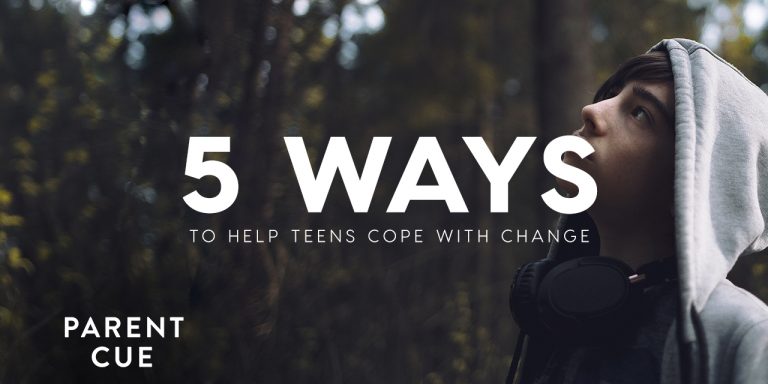
I am a planner and always have been. I carefully constructed a plan for almost every life milestone.
Choosing a graduate school program in high school? Check.
Wedding dress selection? Check (as soon as he proposed)
Birth plan? Check (as detailed as it could possibly be)
For as long as I can remember, I’ve enjoyed planning and longed for routine and stability. In middle school, I sat in the same seat in every class. In college, I decided on my class schedule a semester in advance.
I craved certainty and security.Even though I understood that life was anything but certain, there was something very gratifying about creating order amid chaos. Certainty is associated with clarity and predictability.
According to Dr. David Rock, the author of Handbook of NeuroLeadership, not knowing what will happen next is unsettling for humans and can be debilitating because it requires additional neural energy. Put simply, our brains have to work harder to process the unexpected.
But what happens when life throws you a curve ball that you did not, and could not, plan for?
Despite detailed planning for how my life would unfold, unsurprisingly, there were many surprises along the way:
Breakups
Illness
Career changes
Complicated births
Financial downturns
Moving
Graduating
Many of us have experienced these common life events that can potentially trigger a great deal of stress.
And as if change isn’t tricky enough for adults to navigate, teens and young adults have an even more difficult time with the inevitable uncertainties of this journey called life.
Freshmen year is just around the corner, will I make any new friends?
They just announced the new roster and wait, my name’s not on it this year . . .
We dated for an entire year and now she wants to break up. Will this pain ever subside?
How’s this finding a life purpose thing going to play out?
The presence of unknown variables has the potential to disturb even the most grounded among us. For teens, unwanted or unanticipated change may lead to feeling out of control and overwhelmed. We now know that excessive or chronic stress poses dangerous consequences on mental, emotional, and physical well-being.
By fostering a responsive, rather than reactive approach to coping with change, teens and young adults can
learn how to achieve clarity while navigating the inevitable obstacles of life.
Below are some strategies that can help your teen cope with change:
1. Acknowledge emotions
The first step in managing emotions associated with any type of life change is simply to give yourself permission to experience the emotion so it can run its course. Transitions, like graduation, seem to be entirely positive to onlookers but may trigger feelings of fear and anxiety for a graduate. The reality of entering a new chapter of independence can be profoundly daunting. Whether it is a change of schools or the breakup of a significant relationship, change can bring out feelings of anger, rejection, and abandonment. Encourage your teen to share their feelings through journaling, talking to a therapist or supportive friends to help process the full range of difficult emotions.
2. Focus on values
Some of the most trying circumstances in life make us wish we could hide away in safety until the threat has vanished. Remind your teen it’s okay not to have all the answers to every question or to know how every detail will play out. Remembering what’s important—faith, family, friends, creative expression—is a powerful shield against whatever negative emotions threaten to arise. Ask them to list their values and help them to help the keep this life-change in the right context.
3. Reflect back
Studies have shown that people who experience new life events—new schools, new relationships, or new jobs—experience some level of anxiety, even if the change was desired. Reflect with your teen on a time when they faced a significant change and successfully managed it, despite experiencing some initial fear. “Do you recall how terrified you were to start middle school?” Sometimes unfamiliar events are not as scary as they seem initially and may simply require a little time to adjust.
4. Shift perspectives
We create our own realities in the way we process our thoughts and emotions and through the narratives we tell ourselves. Point out that changes, whether expected or unexpected, are part of the human experience and are opportunities for growth. Rather than be consumed with what was lost, consider potential gains. How can this new situation be a benefit? For example, if they’ve recently moved to a different school or city, help them see it as an opportunity to re-invent themselves. Help them learn to make the best of new situations. They may eventually view the life change as beneficial to their personal growth and life story.
5. Be self-compassionate
Despite our best efforts and carefully executed plans, life often doesn’t go the way in which we intended. In fact, life can be stressful, and often disappointing. Instead of allowing frustration and self-doubt to take root, encourage your teen to offer themselves compassion. Researcher Dr. Kristin Neff explains how to show yourself self-compassion. If you are confronted with a painful experience, instead of ignoring your pain or chastising yourself, Dr. Neff recommends reminding yourself, “This is difficult right now, how can I comfort and care for myself in this moment?” Self-compassionate individuals offer kindness to themselves and others rather than judgment and harsh critiques.
Source: The Parent Cue





